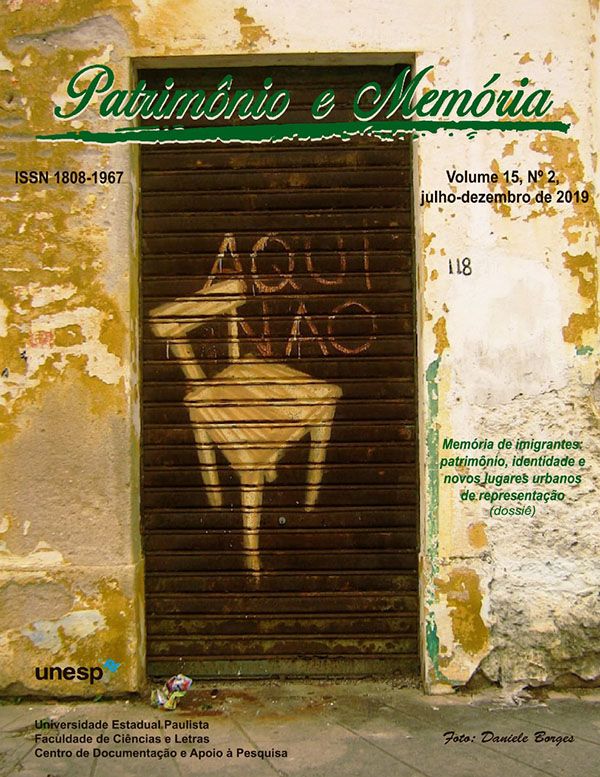Inmigrantes europeos y migrantes venezolanos
entramados en la alteridad desde la convivencia. Lo vivido y memoriado en una casa de vecindad
DOI:
https://doi.org/10.5016/pem.v15i2.3280Palavras-chave:
Inmigrantes, Migrantes, Venezuela, Alteridad, Lo memoriadoResumo
Venezuela sufre por primera vez un intenso proceso de emigración motivado a múltiples factores. Se destaca en lo particular una campaña mediática impregnada de agresividad y distorsiones que viene afectando significativamente la sensibilidad e idiosincrasia del venezolano. Los diversos destinos geográficos han sido los del continente americano, quizás por aquello de la familiaridad del idioma, costumbres y tradiciones similares, aunado poseer el orgullo que un insigne personaje fue el libertador de cinco de estos países hermanos, nuestro Simón Bolívar. Con miras a generar toma de conciencia desde la reflexión permanente para el cambio de actitud, me sumerjo en el paradigma Socioconstruccionista de Gergen (2007) acompañada de la fenomenología social de Schultz (1973) y del método narrativo-biográfico de Montero (2004), para relatar “lo vivido y memoriado” durante mi niñez y adolescencia en una casa de vecindad en Caracas, donde convivieron en un ambiente de respeto, afectividad y alteridad inmigrantes europeos, latinoamericanos y migrantes criollos.
Referências
ARFUCH, L. El espacio biográfico: dilemas de la subjetividad contemporánea. México: Fondo de Cultura Económica, 2002.
CABRERA, D. Imaginario social, comunicación e identidad colectiva. Navarra: Facultad de Comunicación; Universidad de Navarra, 2004.
CÓRDOBA, M E; VÉLEZ-DE LA CALLE, C. La alteridad desde la perspectiva de la transmodernidad de Enrique Dussel. Revista Latinoamericana de Ciencias Sociales, v. 14, n. 2, p.1001-1015, 2016.
DEMETRIO, A. La vida como reflexión de sí mismo. Milán: Cortina, 1996.
FRÍAS, N. Significados y creencias sobre la participación comunitária: una mirada interpretativa desde sus protagonistas. Caracas, 2011. Tese (Doctoral) – Universidad Pedagógica Experimental Libertador.
GERGEN, K. Construccionismo social: aportes para el debate y la práctica. Colombia: Universidad Nacional, 2007.
MARLOS, A; MARLOS, E. El patrimonio cultural: tradiciones, educación y turismo. Universidad de Extremadura; Institución Cultural El Brocense; Imprenta Provincial, 2004.
MÁRQUEZ, E. La perspectiva epistemológica cualitativa en la formación de docentes en Investigación Educativa. Revista de Investigación, Caracas: Instituto Pedagógico de Caracas, n. 66, p.13-35, 2008.
MONTERO, M. Introducción a la Psicología Comunitaria: desarrollo, conceptos y procesos. Argentina: Paidós, 2004.
ONTIVEROS, T. Dinámica cultural y especial de las comunidades. Caracas: FACE; UCV, 1995.
RICOEUR, P. Caminos del reconocimiento: tres estudios. Trad. Agustín Neira. México: Fondo de Cultura Económica, 2006.
RIGHETTI, M. Historia de vida entre la literatura y la ciência: perfiles educativos. México: Universidad Autónoma de México, 2004.
SCHUTZ, A. Las estructuras del mundo de la vida. Buenos Aires: Amorrurtu,1973.
Downloads
Publicado
Como Citar
Edição
Seção
Licença
Copyright (c) 2019 Noemí Frías Durán

Este trabalho está licenciado sob uma licença Creative Commons Attribution 4.0 International License.
Todo o conteúdo do periódico, exceto onde está identificado, está licenciado sob uma Licença Creative Commons do tipo atribuição BY.


